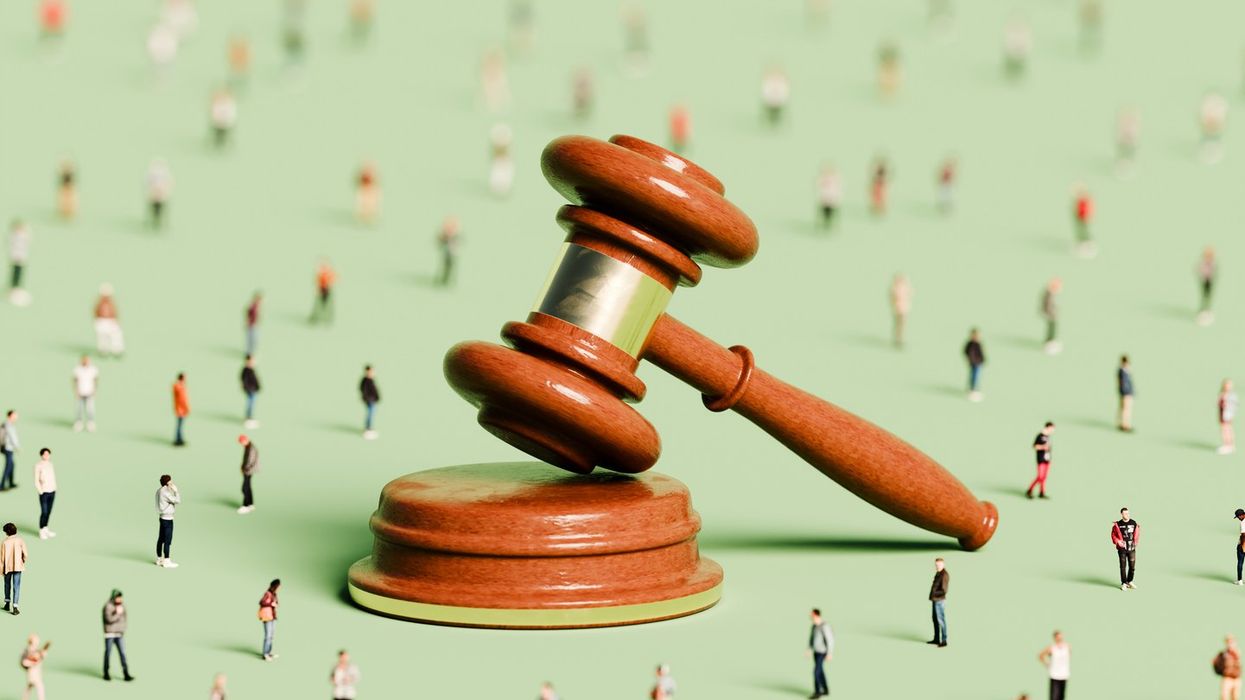In a recent post we quoted a journalist describing the Republican Party as anti-immigration. Many of our readers wrote back angrily to say that the Republican party is only opposed to immigrants who are present illegally.
But that's not true. And we're not shy of telling it like it is.
Recent Republican legislation and executive orders have sought to limit legal immigration, limit benefits for legal immigrants, and limit the rights of legal immigrants. Here are just some examples.
Limiting Legal Forms of Immigration
Immigrants may currently apply for asylum no matter how they enter the United States if they are seeking protection because they have suffered persecution or fear that they will suffer persecution. It's not unusual for asylum seekers to arrive between official ports of entry, look for Border Patrol agents and turn themselves in so that they can begin the asylum process. H.R. 871: RULES Act by Republican Rep. Anna Luna would make only entry at ports of entry an acceptable way to apply for asylum.
The Trump Administration ended Temporary Protected Status for 350,000 Venezuelans and 500,000 Haitian who through designations during the Biden Administration were able to obtain work permits and deportation protection.
And on January 20, U.S. Customs and Border Protection announced it was shutting down the CBP One app causing thousands of people who were trying to enter the U.S. legally to lose their appointments.
There are several ways to be born or become a citizen, but one is in the Constitution: The Constitution's 14th Amendment reads, "All persons born ... in the United States, and subject to the jurisdiction thereof, are citizens of the United States." Now Republicans are trying to change what "jurisdiction" means, contrary to the plain meaning of the word. On January 20, President Trump issued an executive order directing agencies to not "recognize" the citizenship of individuals born to parents either temporarily (e.g. with a visa) or unlawfully in the country, if they don't have citizenship another way. S. 304: Birthright Citizenship Act of 2025 and its companion legislation in the House, introduced by Republicans, would do the same, and dozens of similar bills have been introduced by Republicans over the last two decades. In unrelated but contradictory remarks, Trump's Secretary of Homeland Security said of her department, "We have jurisdiction over people who live here, people who leave here, and people who come here. ... I tell people we have jurisdiction over everything."
Limiting Access to Benefits to Legal Immigrants
President Trump signed an executive order purporting to make English the official language of the country, though the president has no specific power to do so, and the executive order's only directive is merely that federal agencies won't provide language assistance to non-English speakers seeking federal services, which had been required since the 1990s. Around 15% of United States citizens speak a language other than English at home, as of course do many lawfully present immigrants (not to mention that in Puerto Rico, a U.S. territory inhabited by U.S. citizens, Spanish is the predominant language). Republicans have been proposing bills in Congress to make English the official language for decades.
H.R. 746: America First Act by Republican Reps. Jodey Arrington and Chip Roy would deny numerous federal benefits for health, child care and school meals, housing, and natural disasters to non-citizens and their children not only to those present unlawfully but also to those present legally through Temporary Protected Status and asylum. (It also would deny benefits to unlawful immigrants who themselves arrived in the country as children but now may be adults.)
Limiting the Rights of Legal Immigrants
You've probably read about the detention of Mahmoud Khalil, a Columbia University student and lawful permanent resident (i.e. green card holder) who was born a Palenstinian refugee in Syria and led pro-Palestinian protests here. He's being detained with the intention of deportation. But he hasn't been charged with a crime. It's expected that the Trump Administration will cite protest activities that would be protected by the First Amendment if he were a citizen but may not protect him from deportation. It's not clear how courts will rule on it. If they rule against Khalil, First Amendment rights will be significantly curtailed for immigrants.
The Washington, D.C. municipal government and municipalities in California, Maryland and Vermont allow non-citizens to vote in local elections. It sounds odd today, but it was actually normal for non-citizens to be permitted to vote through the early 20th Century. Republicans in Congress have sought to block D.C.'s municipal government from doing so.
Look, we know that politicians' have sometimes said that their goal is to remove incentives for illegal immigration. But we have always reported not on what politicians say but what they do. And what the policies in this article would do is limit legal immigration, reduce benefits for legal immigrants, and limit the rights of legal immigrants. And while obviously not all Republican officials have supported all of these policies, as a whole the party has clearly adopted an anti-immigration stance.
Recent Republican policies and proposals limiting legal immigration and legal immigrants' benefits and rights was originally published by GovTrack.us and is shared with permission.
Joshua Tauberer is the founder of GovTrack.us and created the site initially as a hobby in 2004.
Amy West has been the GovTrack research and communications manager since February 2017.



















Marco Rubio is the only adult left in the room